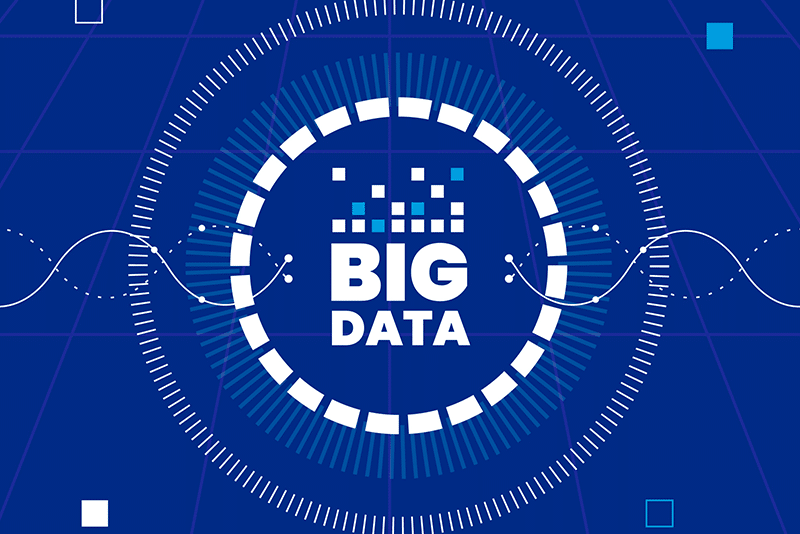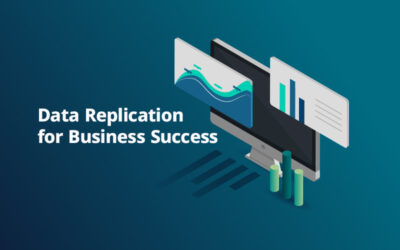Businesses are currently flooded with enormous amounts of data produced through a variety of channels, including contacts with customers, purchases, social media, website visits, and more. This vast amount of data, often referred to as “Big Data,” has emerged as a significant resource for businesses in a variety of sectors. Companies can benefit greatly from using big data, but maintaining and interpreting such enormous amounts of data can be difficult. Business process outsourcing services can be useful in this situation. Large-scale data management and organization are a BPO company’s area of expertise. They can aid organizations in the gathering, storing, cleaning, and upkeep of data, ensuring its accuracy and accessibility. Additionally, these providers ensure scalable and flexible solutions to meet the ever-changing data needs of organizations.
Significance of Big Data
Big data has emerged as a key resource, offering priceless insights that guide decision-making, enhance the consumer experience, and promote innovation. Instead of depending simply on intuition, big data analytics empowers businesses to make wise decisions based on data and trends. It gives companies access to information on consumer preferences, spending patterns, and market trends. Big data helps you make more informed, data-driven decisions, which leads to better strategies, improved products/services, and increased competitiveness.
With big data, businesses can optimize processes and allocate resources efficiently to minimize cost and streamline workflow. By leveraging data on emerging trends and customer demands, businesses can proactively develop new products or services, positioning themselves as industry leaders. Big data also plays a crucial role in risk management and fraud detection. By analyzing data in real-time, businesses can identify potential risks and anomalies, enabling them to take proactive measures and prevent fraudulent activities.
Misconceptions about Big Data
Big data offers insightful information for businesses to grow. However, persistent myths and misconceptions about big data cause some companies to ignore its enormous potential.
-
- Big data is too difficult to manage: With the large amount of data generated in real-time from various sources like audio, video, and photos, it can be difficult to manage. Big data analytics utilizes a variety of technologies and simulation tools that may initially appear to be too complex to handle. Most inventions have a difficult learning process and big data tools are no different. Data points are stored, processed, analyzed, and visualized using a few specialized tools that require some training to use. To ease these challenges, have a professional assist you in adjusting to all of this data, data technologies, and their applications.
-
- Big data is exclusive to big businesses: This is the biggest myth of them all and is incorrect on many levels. There is a general misconception that big data can be harnessed only by large businesses. This is not valid. It is incorrect to think that small organizations lack the necessary tools to utilize big data.Small businesses tend to adopt a more individualized approach to operating and overseeing day-to-day operations. They can effectively manage large amounts of data by leveraging open-source software.
-
- Big data is reliable: Big data may be messy and converting raw data into meaningful insights is important. This is possible if the right resources are available at the right time. People with the knowledge, experience, and capacity to manage large amounts of data will be required. Then decisions can be made based on data-driven insights. Data scientists, analysts, and business managers are essential to the success of big data. These professionals employ various techniques to validate and clean big data before drawing conclusions. Ensuring data quality and proper analysis methods is crucial to making reliable decisions based on big data insights.
-
- Big data will replace people soon: There is no machine that can match human intuition and intelligence. Data analysts are still needed to run the equipment and analytical tools even with huge data. Additionally, unlike humans, machine algorithms are unable to offer original thinking. Big data also cannot take the place of human ingenuity. Human brains and the creativity within them make decisions based on the numerous insights offered by big data. This is not possible with computer algorithms because even robots lack the same capacity for creativity as people. As a result, this particular myth lacks a solid foundation.
-
- Big data assures a greater ROI: Technology cannot automatically produce the best results. It is not possible to control the impact of external circumstances on a firm and its many decisions, even with technology. Making data-driven forecasts wouldn’t be necessary if external circumstances could be managed. While big data alone cannot guarantee a higher return on investment (ROI), big data analytics can be utilized to create models and data sets capable of calculating statistically significant results. These insights can then be translated into lucrative decisions, potentially leading to improved ROI.
-
- Big data can make predictions: This is actually a half-truth. When utilized appropriately, big data can offer valuable insights for future predictions, but it is essential to recognize that these insights are derived from historical data. As a result, the user’s specific needs, inquiries, and the data evaluated play a crucial role in shaping these insights. Consequently, relying solely on big data for making future projections may not be entirely trustworthy due to its dependence on past information.
-
- Existing data warehouses will be replaced by big data: Big data is yet not developed enough to address all types of data-related problems. Additionally, big data platforms and technologies are not a substitute for RDBMS or conventional data warehouses. Big data should only be used for specialized purposes and not universally. Therefore, although big data may soon fulfill some of the needs of data warehouses, it is not intended to replace current data warehouses.
-
- Better decision-making is a promise of big data: Big data can aid in taking more well-informed decisions if used properly and with necessary assistance from executives and analysts. Once more, this does not guarantee success! Big data analytics are technologies that assist in identifying links and patterns from a set of data points, but the capacity to make decisions ultimately rests with those who use and understand these relationships and patterns. External influences will ultimately determine whether a trend or correlation is a good one or a poor one, even if it has been precisely recognized and exposed. Although predictions can be made, they are not always accurate. Big data is a support feature that can facilitate forecasts.
-
- Deploying big data depends only on IT: Having an IT department in a company is undoubtedly beneficial, as it can proficiently set up the necessary software and hardware for handling big data. Nevertheless, relying solely on a dedicated IT team is insufficient to effectively implement a big data strategy. The success of a big data strategy lies in enabling better decisions, and, therefore, the department responsible for making those decisions must thoroughly evaluate the solutions. Collaboration between the IT department and the decision-makers is crucial for the successful deployment and utilization of big data strategies.
- Big data is simply hype: Big data is much more than hype; it is a powerful tool that is reshaping industries, fostering innovation, and driving positive change across various sectors. Embracing and effectively utilizing big data can lead to numerous benefits and opportunities for businesses and society as a whole.
Get in touch now to discover how our top-notch BPO services can support your data management requirements.
Businesses may improve customer experiences, streamline processes, and make educated decisions by utilizing big data. Big data management and analytics, however, can be a challenging and resource-intensive task. Business process outsourcing services can provide organizations with the knowledge and scalability required to manage big data successfully. Businesses can maximize the value of big data and achieve a competitive edge by collaborating with competent BPO providers.




